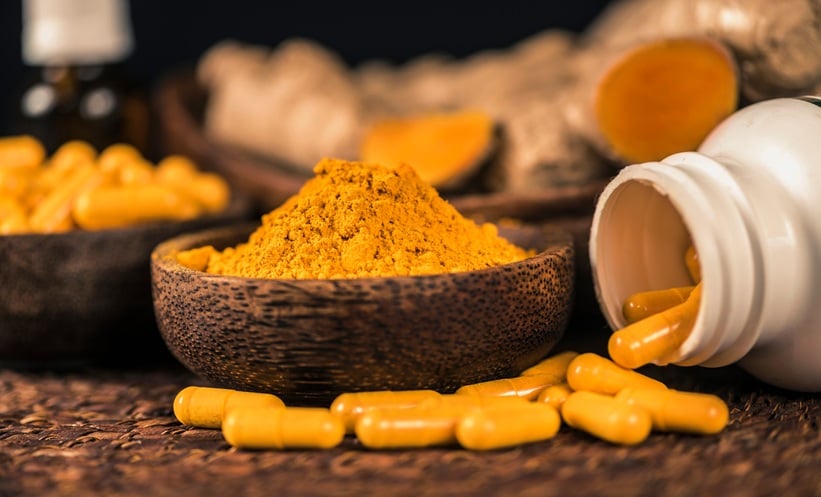THE GLOBAL burden of Type 2 diabetes mellitus continues to rise, closely intertwined with metabolic dysfunction-associated steatotic liver disease (MASLD). These two conditions share underlying mechanisms, including insulin resistance, oxidative stress, and chronic inflammation. Addressing these overlapping pathways is vital to slowing disease progression and improving metabolic health. Emerging evidence suggests that curcumin supplementation, derived from Curcuma longa (turmeric), may offer promising therapeutic benefits for both MASLD and Type 2 diabetes treatment.
Long-Term Effects of Curcumin on Liver and Metabolism
A 12-month randomised controlled trial investigated curcumin supplementation in Type 2 diabetes treatment, specifically its effects on liver steatosis and metabolic parameters in obese individuals. The study used the controlled attenuation parameter (CAP) to measure liver fat accumulation, a hallmark of MASLD. Results revealed that curcumin significantly reduced hepatic steatosis, liver stiffness, inflammatory cytokines, and oxidative stress markers, while improving lipid and glycaemic profiles.
Mechanistically, curcumin enhanced antioxidant enzyme activity, boosting glutathione peroxidase (GPx), superoxide dismutase (SOD), and total antioxidant capacity, thereby reducing lipid peroxidation and protecting hepatocytes from oxidative injury. The anti-inflammatory effects were equally notable, with lower interleukin-1β and tumour necrosis factor-alpha (TNF-α) levels, highlighting curcumin’s ability to disrupt the cycle of inflammation that fuels both insulin resistance and hepatic damage.
Towards a Safer MASLD and Diabetes Treatment
Importantly, curcumin was well tolerated, with only mild gastrointestinal side effects reported. These findings underscore its potential as a complementary therapy alongside conventional treatments for Type 2 diabetes mellitus and MASLD. However, challenges such as low bioavailability and limited generalisability across populations remain.
Overall, this study strengthens the case for curcumin supplementation in type 2 diabetes treatment, revealing its capacity to reduce liver fat, inflammation, and oxidative stress. As a natural polyphenolic compound with pleiotropic metabolic benefits, curcumin may represent a safe, accessible adjunct in managing the dual burden of Type 2 diabetes mellitus and MASLD, warranting larger, multi-centre trials to confirm its long-term efficacy and safety.
Reference
Yaikwawong M et al. Curcumin attenuates liver steatosis via antioxidant and anti-inflammatory pathways in obese patients with Type 2 diabetes mellitus: a randomized controlled trial. Int J Mol Sci. 2025;26(19):9286.








